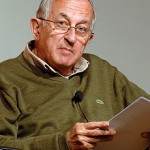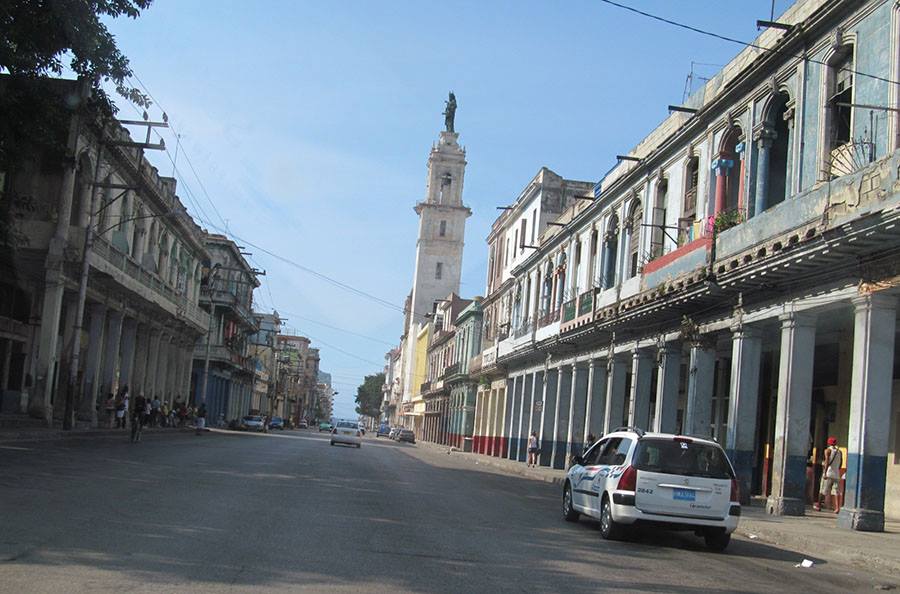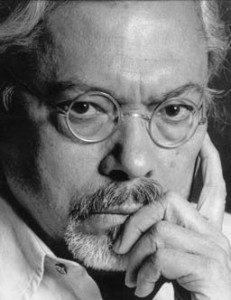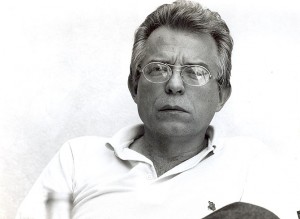HISTORIAS DE LA REVOLUCIÓN CUBANA: Homofobia y Lacras Sociales
Por Juan Goytisolo
España, Diciembre 13, 2013
Decir que he leído de un tirón, con apasionamiento, “Mapa dibujado por un espía”, de Guillermo Cabrera Infante, publicado por Galaxia Gutenberg en una cuidada edición a cargo de Antoni Munné, es quedarme corto. La inmersión en sus páginas ha sido para mí retroceder en el tiempo, un salto vertiginoso de medio siglo para vivir entre personajes que fueron mis amigos y otros muchos que frecuenté u oí hablar de ellos durante mis dos viajes de “turista revolucionario” a una Cuba que parecía encarnar la utopía de una sociedad libre, justa e igualitaria. Mi librito Pueblo en marcha,publicado en París en 1962, da buena cuenta de ello.
Durante mi segunda estancia en La Habana, en plena crisis de los cohetes, con miras a un guión de cine para Tomás Gutiérrez Alea que nunca se llevó a cabo, Cabrera Infante no estaba en Cuba. Había sido nombrado agregado cultural de la embajada de su país en Bruselas y allí residía cuando en junio de 1965 recibió la noticia de la grave enfermedad de su madre y llegó a La Habana justo para asistir a su entierro. Tras unos días de duelo, cuando se disponía a coger el avión de regreso, una llamada telefónica del ministro de Asuntos Exteriores se lo impidió. Raúl Roa quería hablar con él y no pudo embarcarse con los demás pasajeros.
Mapa dibujado por un espía abarca el periodo de cuatro meses entre esta salida frustrada y su costosa autorización para dejar la isla con destino a España en donde su novela Tres tristes tigres había sido galardonada con el premio Biblioteca Breve de la editorial Seix Barral: un periodo lleno de tensiones e incidentes que desembocaron en su decisión de expatriarse con la amarga verificación de que Cuba ya no era Cuba y de que aquel país no era su país.
Cuba ya no era Cuba y aquel país ya no era el suyo
Ante el rumbo inquietante de la revolución hacia un sistema totalitario que alarmaba incluso a viejos militantes comunistas como el poeta Nicolás Guillén a quien Fidel Castro había tildado de “haragán” en una charla con los estudiantes (“¡Este tipo es peor que Stalin! Por lo menos Stalin está muerto pero este va a vivir 50 años más y nos va a enterrar a todos”, dijo Guillén a Cabrera Infante), los escritores cubanos llamados al orden desde el famoso encuentro con Fidel en 1961 y el cierre posterior del magacín Lunes de Revolución dirigido por Guillermo, se habían dividido entre quienes se atrevían a criticar abiertamente la deriva autoritaria del régimen como Walterio Carbonell y Martha Frayde, los críticos cautos como Carlos Franqui y Gutiérrez Alea (cuyo filme Fresa y chocolate fue un prudente ejercicio de disidencia) y los que se doblegaron a los imperativos doctrinales del “socialismo real” en el que, como dijo un libertario de Mayo del 68, todo era real excepto el socialismo.
Dada la imposibilidad de resumir aquí la pleamar represiva que afectaba a intelectuales, escritores y artistas reflejada en el libro, me detendré en uno de los elementos más significativos de lo que se conoce hoy como la Década Ominosa: la obsesión enfermiza del régimen contra los culpables o sospechosos de homosexualismo, calificados de “delincuentes sexuales”, obsesión que desembocó en el envío de decenas de millares de ellos a los campos de trabajo de las UMAP (Unidades Militares de Ayuda a la Producción) poco después de la salida de Cabrera Infante de la isla.
La creación de un departamento del Ministerio del Interior, el de Lacras Sociales, era el vértice de una vasta pirámide de espionaje y control que a partir de los Comités de Defensa de cada barrio elaboraba casa por casa un censo de los sospechosos de desviación. Obviamente, los medios literarios y artísticos se convirtieron en el punto de mira de los celadores del orden y las buenas costumbres impuestos por la Revolución. El Teatro Estudio, el grupo cultural El Puente, los círculos intelectuales marginados por la línea oficial comenzaron a sufrir las consecuencias de esa manía persecutoria. El director de la revista Casa de las Américas, Antón Arrufat, había sido destituido de su cargo por haber publicado un poema de José Triana con alusiones homoeróticas e invitado a Cuba al icono de la Beat Generation Allen Ginsberg. En cuanto a Virgilio Piñera, detenido ya en 1961 en la primera redada organizada por los guardianes de la ortodoxia a ultranza y liberado gracias a la intervención de Carlos Franqui, vivía aterrorizado y con esa valentía suya que brotaba del miedo había discutido con sus amigos la idea de una manifestación ante el palacio presidencial para denunciar el acoso que sufrían por parte de Lacras Sociales y su jauría de malsines. Dicha manifestación que anticipaba la de los actuales activista gais en regímenes autoritarios y que en el contexto cubano de 1965 era inútilmente suicida no se realizó y el ministro del Interior, el comandante Ramiro Valdés y su adjunto Manuel Piñeiro siguieron con las suyas contra las “desviaciones y extravagancias” tanto de la santería africana de los lucumíes y abakuás como de los estigmatizados sodomitas.
CARLOS FRANQUI Y EL CHE GUEVARA (1959)

El régimen inició una enfermiza obsesión contra los homosexuales
El episodio más revelador de esa atmósfera paranoica que refleja el libro es tal vez el referido al autor por Tomás Gutiérrez Alea, mi amigo Titón: el del “juicio” al que asistió casualmente con dos colegas en la Federación de Estudiantes Universitarios contra dos alumnos acusados de contrarrevolucionarios, sentados en un estrado con el juez y sus acusadores ante una asamblea vociferante que no les concedía la palabra y exigía su expulsión. Las víctimas de aquella siniestra farsa eran un muchacho motejado de “raro” y una chica, de “egoísta y exquisita”. Los dos jóvenes y un asistente al acto que no alzó el brazo como los demás (“¡ojo, aquí hay uno que no votó!”) fueron excluidos de la universidad y después de aquel linchamiento purificador el raro, un alumno eminente de la escuela de Arquitectura, se arrojó del último piso del edificio en el que vivía. La epidemia de suicidios que diezmó las filas de la intelectualidad y la clase política cubanas durante aquellos años, epidemia analizada por Cabrera Infante en su obra Mea Cuba, se cobró una víctima más.
No quiero concluir estas líneas sin mencionar la digna y eficaz intervención de Lezama Lima para quitar hierro a las palabras del Walterio Carbonell ante un grupo de empresarios franceses salvándole así momentáneamente de la máquina represiva que se abatiría sobre él dos años más tarde acusado de fomentar un Poder Negro en la isla y el ostracismo y castigo de algunos fieles de Che Guevara como el embajador de Cuba en Bruselas Alberto Mora a quien su excompañero de lucha antibatistiana Ramiro Valdés visitaría más tarde en su celda de La Cabaña exhortándole a que confesara sus imaginarios crímenes contrarrevolucionarios, y Enrique Oltuski, enviado cuatro meses al penal de Isla de Pinos por haber pronosticado con acierto el fracaso de uno de los grandiosos planes agrícolas de Fidel.
La transformación del “desviacionismo” sexual en político y de ambos en una forma inicua de delincuencia constituye una de las páginas más sombrías de una Revolución que Cabrera Infante, como la inmensa mayoría de intelectuales cubanos, acogió con entusiasmo hasta que las sucesivas experiencias recogidas en el libro sobre su última estancia en la isla le convirtieron en este gran escritor de dentro desde fuera de Cuba que todos sus lectores admiramos.

Juan Goytisolo, Autor. Nacido el 06 de enero 1931 en Barcelona es un español poeta, ensayista y novelista. Ingreso desde muy joven en el Partido Comunista Español.
Actualmente vive en la medina de Marrakech, el novelista español Juan Goytisolo ha publicado al menos 15 obras de ficción en Inglés, y la más reciente, El jardín de los secretos, como la mayoría de sus trabajos anteriores, es, en parte, un ataque a España natal del autor y, en en particular, en Franco y los fascistas. De hecho, como James Joyce, Samuel Beckett, Thomas Bernhard y otros grandes escritores que vivieron en el exilio y, a menudo desecharon a sus países de origen, Goytisolo ha pasado la mayor parte de su vida atacando los valores presente y pasado de su propio país. Su más reciente (y aún no traducida) novela, Carajicomedia (A Cock-Eyed Comedia) – ahora un éxito de ventas en España – ataca a la Iglesia católica española y su sociedad secreta auxiliar, el Opus Dei.
ELPais/Espana/InternetPhotos/www.thecubanhistory.com
CUBA REVOLUTION STORIES: Homophobia and Social Lacras
The Cuban History, Hollywood.
Arnoldo Varona, Editor
Calles de La Habana, Cuba
FOTO por Marta Alicia Fernández

STORIES OF THE CUBAN REVOLUTION : Homophobia and Social Lacras
By Juan Goytisolo
Spain , December 13, 2013
To say that I have read in one sitting , passionately , ” Map drawn by a spy” by Guillermo Cabrera Infante , published by Galaxia Gutenberg in a carefully edited by Antoni Munne , is to stay short . Immersion in their pages was for me back in time , a dizzying leap half a century to live among characters who were my friends and many others who frequented or heard of them during my two trips “revolutionary tourist” to Cuba that seemed to embody the utopia of a free, just and egalitarian society. My booklet Village underway, published in Paris in 1962 , gives a good account of it.
During my second stay in Havana , during the missile crisis with a view to a film script Tomás Gutiérrez Alea that never took place , Cabrera Infante was not in Cuba . He was named cultural attache at the embassy in Brussels and resided there when he received the news of the serious illness of his mother in June 1965 and arrived in Havana just to attend his funeral. After days of mourning, as he prepared to take the plane back , a phone call from Foreign Minister stopped him. Raúl Roa wanted to talk to him and he could not engage with the other passengers .
Map drawn by a spy covers the period of four months between this output and costly frustrated permission to leave the island to Spain where his novel Three Trapped Tigers had been awarded the Biblioteca Breve Prize Seix Barral : a period full of tension and incidents that led to his decision to emigrate to Cuba bitter verification that Cuba was no longer that country , and that was not his country.
Cuba and Cuba was no longer that country was no longer hers
Given the disturbing course of the revolution towards a totalitarian system that alarmed even old communist militants as the poet Nicolás Guillén Fidel Castro who was branded a ” lazy ” in a talk with students ( “This guy is worse than Stalin! On at least Stalin is dead but this will live another 50 years and will bury us all , “Guillen said Cabrera Infante ) , Cuban writers to task from the famous meeting with Fidel in 1961 and the subsequent closure of the magazine Monday Revolution led by William, had been divided between those who dared to openly criticize the authoritarian regime as Walterio Carbonell and Martha Frayde , the cautious critics as Carlos Franqui and Gutiérrez Alea ( whose film Fresa y chocolate was a prudent exercise of dissent ) and those who bowed to the doctrinal imperatives of “real socialism” in which , as one libertarian May 68 , everything was real except socialism.
Given the impossibility of summarizing here the repressive tide affecting intellectuals, writers and reflected artists in the book, I will stop at one of the most significant of which is today known as the Ominous Decade elements: the unhealthy obsession of the regime against the guilty or suspected homosexuality, labeled ” sex offenders ” obsession that led to sending tens of thousands to labor camps of the UMAP ( Military Units to Aid Production ) shortly after the departure of Cabrera Infante the island.
The creation of a department of the Ministry of Interior, Social Lacras was the apex of a vast pyramid of spying and control from the CDR elaborated each neighborhood house to house census of suspected diversion . Obviously , literary and artistic media became the focus of the guards of order and decency imposed by the Revolution. The Studio Theater , the cultural group El Puente, intellectual circles marginalized by the official line began to suffer the consequences of that persecution . The editor of the Casa de las Americas , Anton Arrufat , had been removed from office for having published a poem by José Triana with homoerotic allusions and invited Cuba to the Beat Generation icon Allen Ginsberg. As Virgilio Piñera, and arrested in 1961 in the first raid by the guardians of orthodoxy extreme and released thanks to the intervention of Carlos Franqui , I lived in terror and that his courage welling fear had discussed with her friends idea of a demonstration outside the presidential palace to denounce harassment suffered by Social Lacras and his pack of informers . This demonstration that anticipated the current gay activist and authoritarian regimes in the Cuban context , 1965 was not performed unnecessarily suicidal and Interior Minister , Commander Ramiro Valdes and his deputy Manuel Piñeiro followed with theirs against ” deviations and extravagances “of both African and Santeria of lucumíes abakuás stigmatized as sodomites .
CARLOS FRANQUI Y EL CHE GUEVARA (1959)

Regime began an unhealthy obsession with gay
The most revealing episode of the paranoid atmosphere that reflects the book is perhaps referred to the author by Tomás Gutiérrez Alea , my friend Titón : the “trial” which was attended casually with two colleagues in the Federation of University Students against two students charged counterrevolutionaries , sitting on a bench with the judge and prosecutors before a raucous meeting that gave them no word and demanded his expulsion. The victims of this sinister farce were a boy decried “weird” and a girl, of “selfish and exquisite .” The two young men and an assistant to act not raised his arm as the other ( “eye , here’s one that did not vote ” ) were excluded from the university and after that purifying lynching rare , an eminent student of the school Architecture , threw himself from the top floor of the building where he lived . The suicide epidemic that decimated the ranks of the Cuban intelligentsia and political class during those years , analyzed by Cabrera Infante epidemic in his Mea Cuba , claimed another victim .
I can not conclude without mentioning these lines worthy and effective intervention Lezama Lima to remove iron Walterio Carbonell ‘s words to a group of French businessmen and momentarily saving his repressive machine that would befall him two years later accused of encouraging a Black power in the island and ostracism and punishment of some faithful Che Guevara and Cuba ‘s ambassador in Brussels Alberto Mora whom his former teammate of anti-Batista struggle Ramiro Valdés visit later in his cell in La Cabana urging him to confess his imaginary crimes counter , and Enrique Oltuski , sent four months Isla de Pinos prison for having correctly predicted the failure of one of the great agricultural plans Fidel .
The transformation of sexual ” desviacionismo ” both in political and in an unjust form of crime is one of the darkest pages of a revolution that Cabrera Infante, as the vast majority of Cuban intellectuals , welcomed with enthusiasm until successive experiences in the book on his last visit to the island made him into this great writer from outside Cuba that all readers admire.

Juan Goytisolo , Author . Born January 6, 1931 in Barcelona is a Spanish poet , essayist and novelist. Income from very young in the Spanish Communist Party.
Currently lives in the medina of Marrakech, the Spanish novelist Juan Goytisolo has published at least 15 works of fiction in English, and most recently , The Garden of Secrets, like most of his previous work , is , in part , an attack native Spain to the author and, in particular, Franco and the fascists. Indeed, as James Joyce , Samuel Beckett, Thomas Bernhard and other great writers who lived in exile and often loathed their countries of origin, Goytisolo has spent most of his life attacking the present and past values of their own country . His most recent (and still untranslated ) novel, Carajicomedia (A Cock – Eyed Comedy ) – now a bestseller in Spain – Spanish attacks the Catholic Church and its auxiliary secret society , Opus Dei.
El Pais/Spain/InternetPhotos/www.thecubanhistory.com
CUBA REVOLUTION STORIES : Homophobia and Social Lacras
The Cuban History , Hollywood.
Arnoldo Varona , Editor




